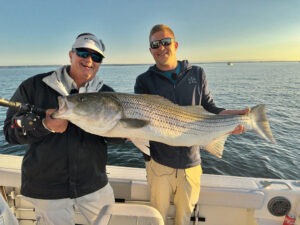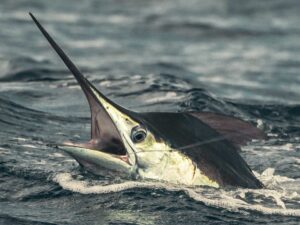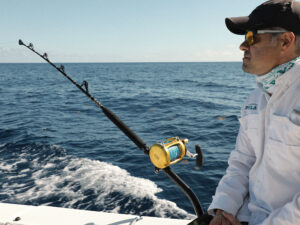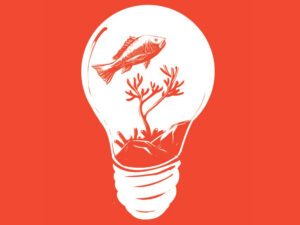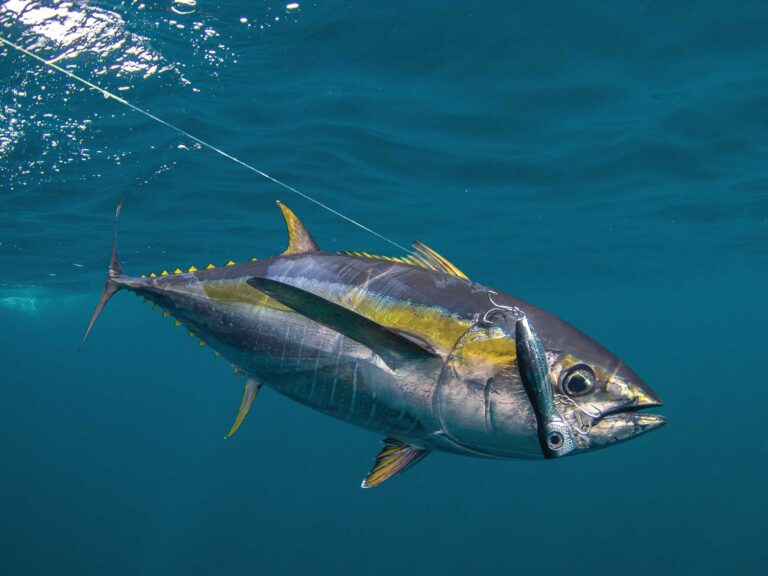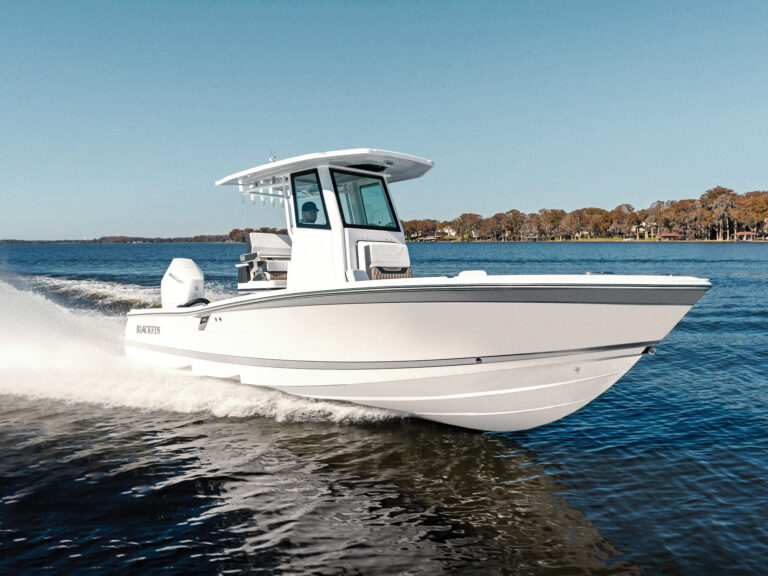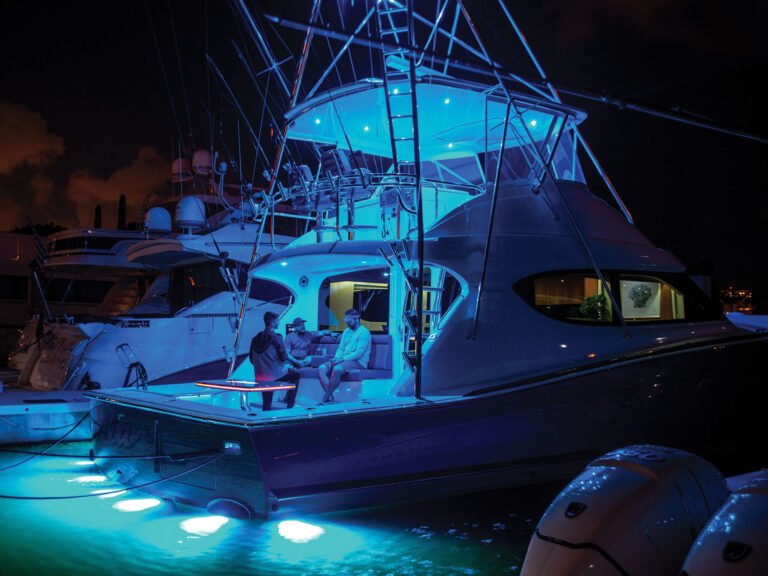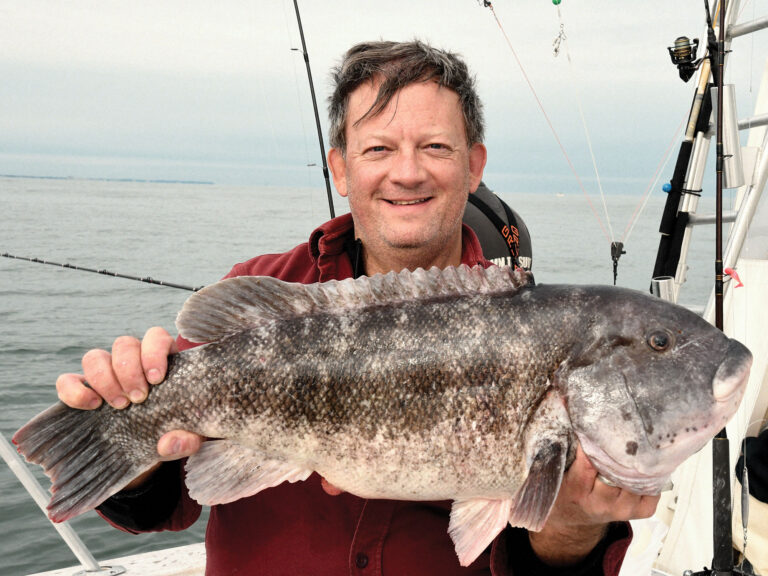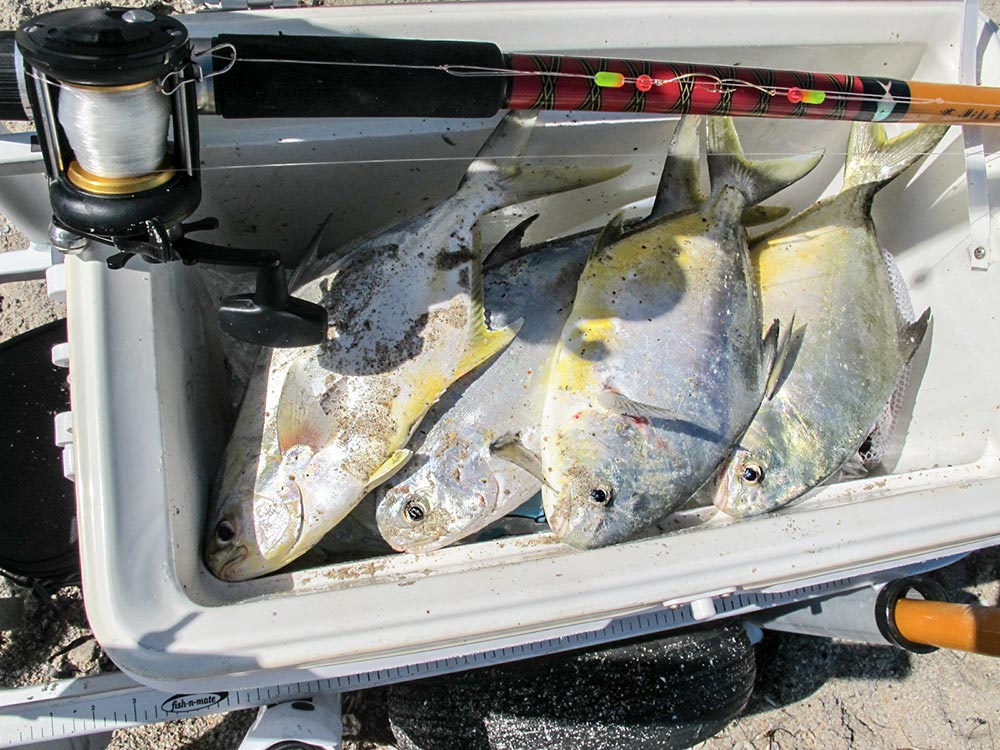
Once winter arrives, Florida becomes the undisputed epicenter of surf fishing in the Eastern seaboard, and the shining star of the show is the pompano, a relatively small fish with a huge, rabid following, and for good reasons: pompano is delicious, it’s tough fighter for its size, and usually plentiful when conditions are right.
This surf pompano fishery is highly seasonal, and sometimes short-lived, which only adds to the hype and the fire that prompts so many anglers to target this silvery speedster. Maddingly hard to predict, pompano can be here today and gone tomorrow. But dedicated pursuers strike it rich often enough to keep them coming back. Success comes to those who know the drill, have the right gear, and understand how to read the surf. But at the end of the day, the key is to go fish for pompano as often as possible, relish the days when you strike gold, and lick your wounds when you don’t. Either way, pompano fishing is still a day at the beach.
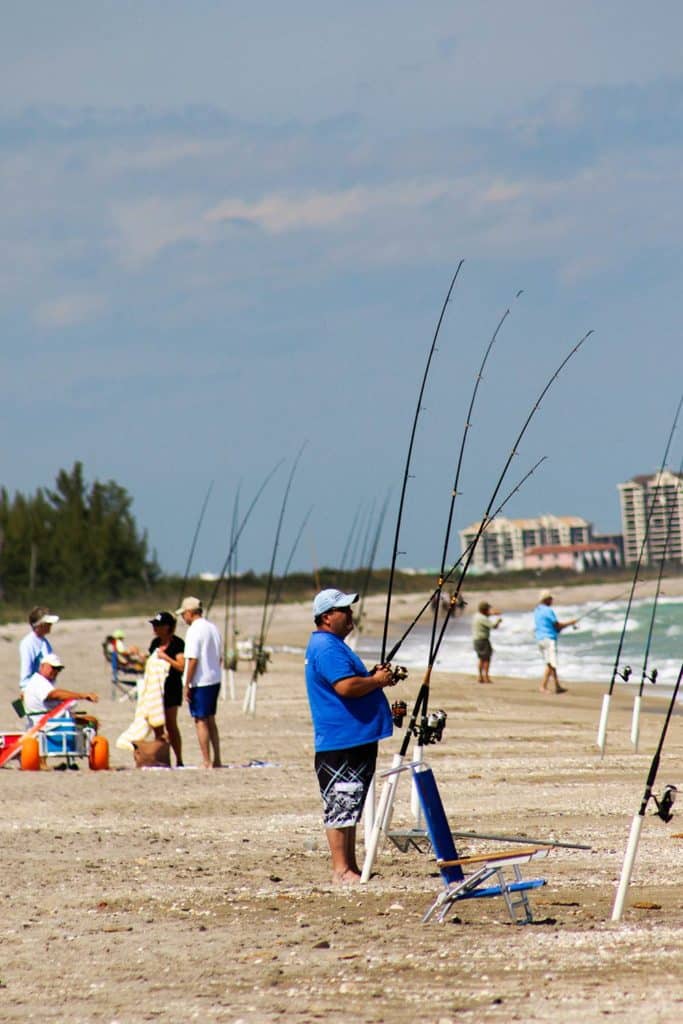
The word gets out quickly when the pompano are running.
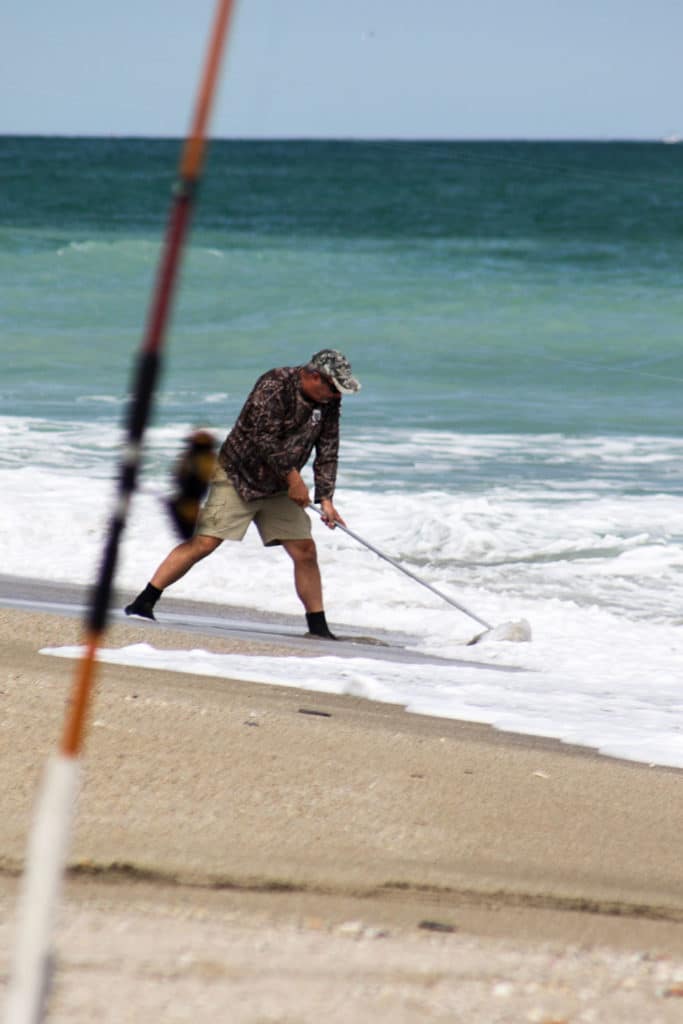
Angler raking live sand fleas, a top bait for pompano and other surf species.

Score! A colony of choice sand fleas to start the day off right.
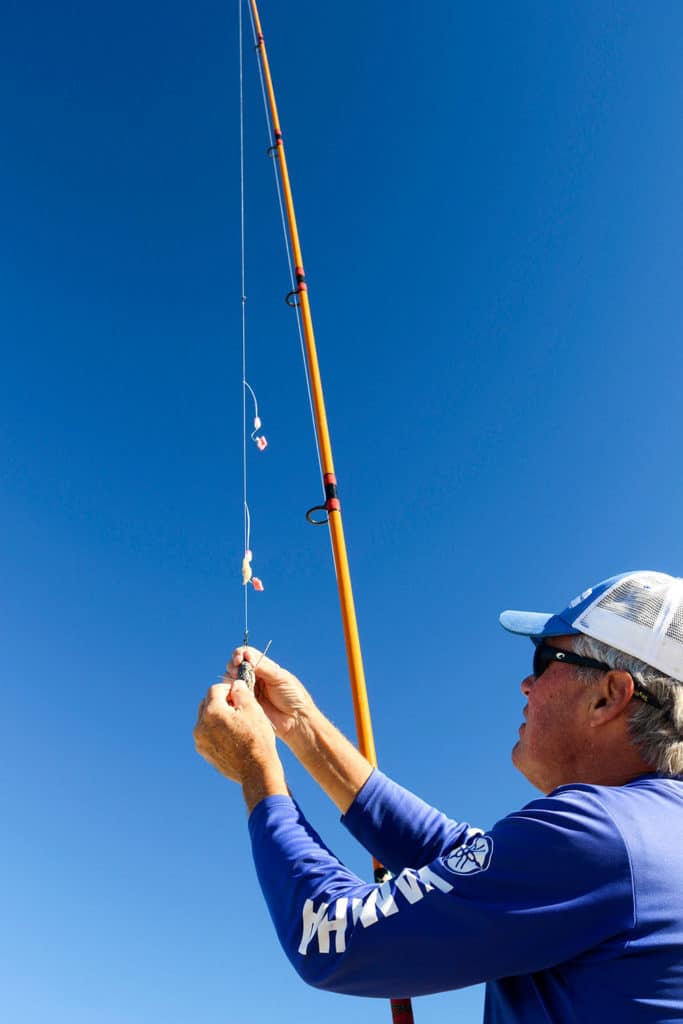
Dropper rigs present more than one bait and make “doubles” possible.
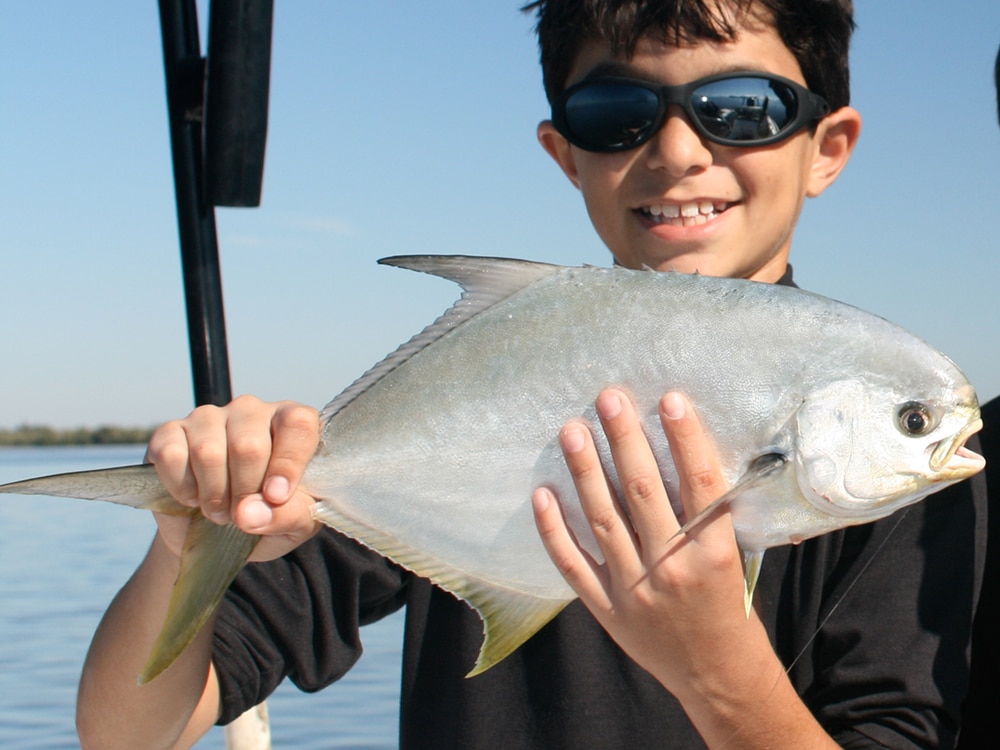
The broad, forked tail of a big pompano makes it a fast and formidable fighter.
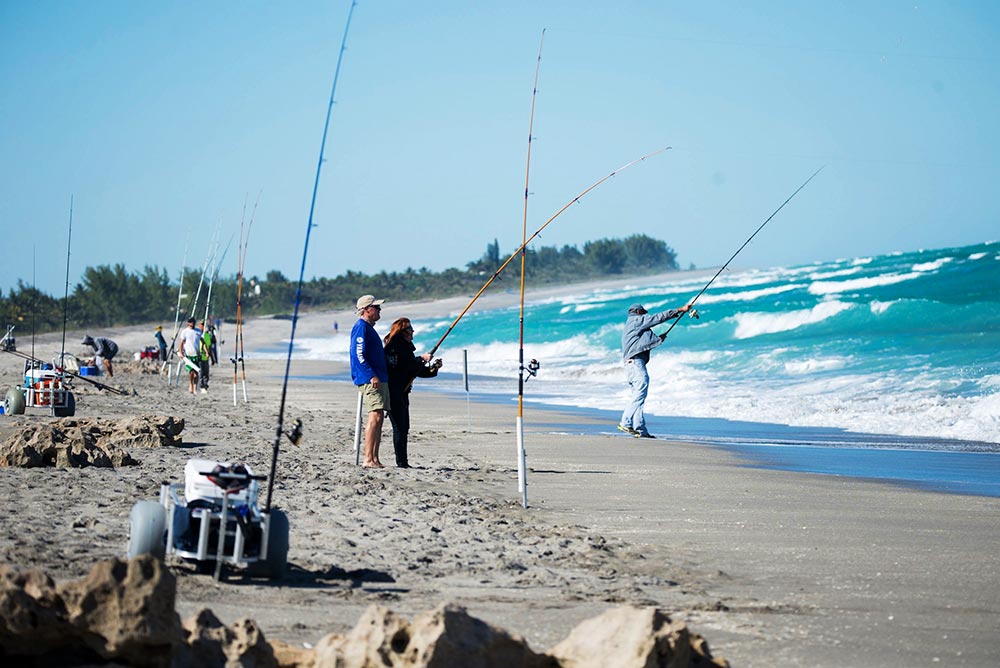
The bite is on! A big pompano puts a bend in the rod.
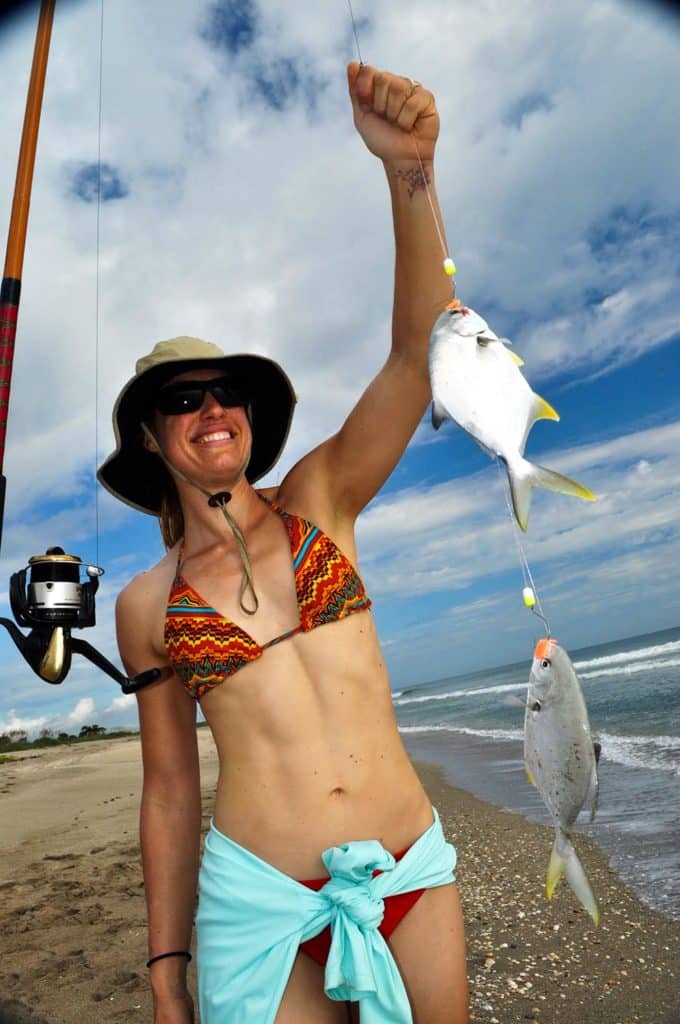
Doubles are common with the early, small fish that run in the fall.

A big pompano pulls hard, even when hooked on stout tackle.
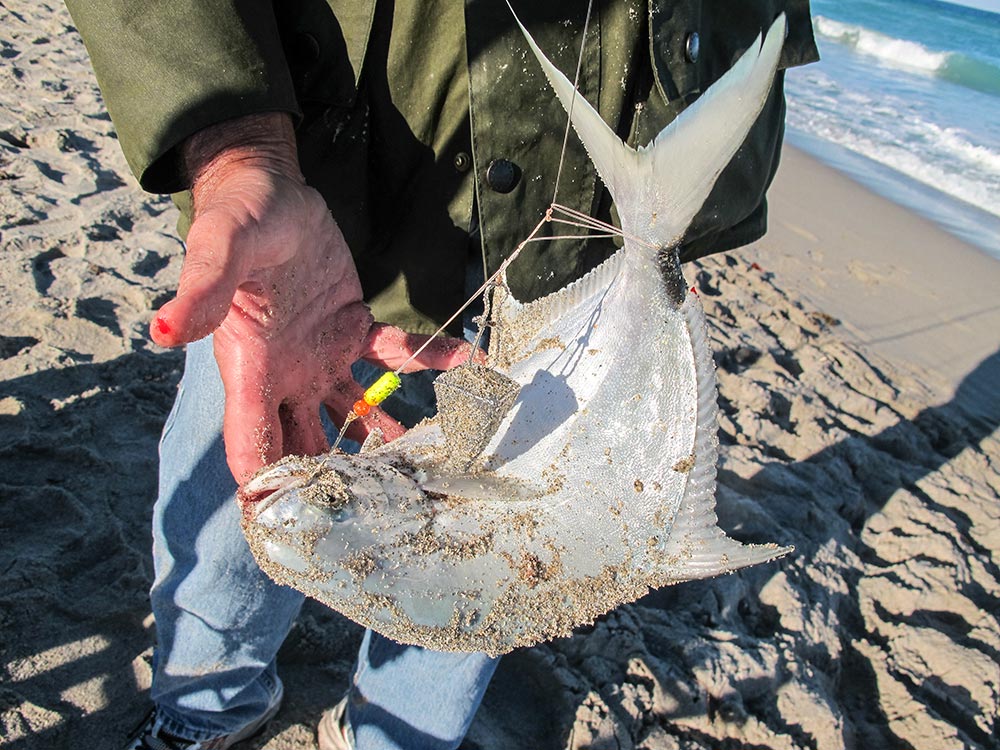
This pompano was not about to get away.
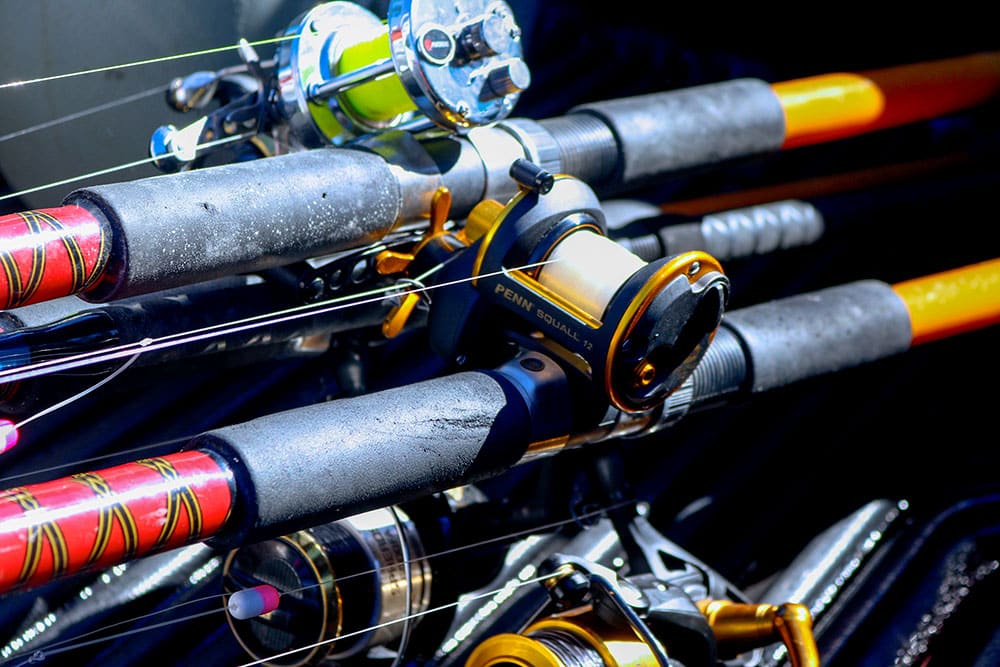
Stout conventional and spinning outfits designed for long casts.
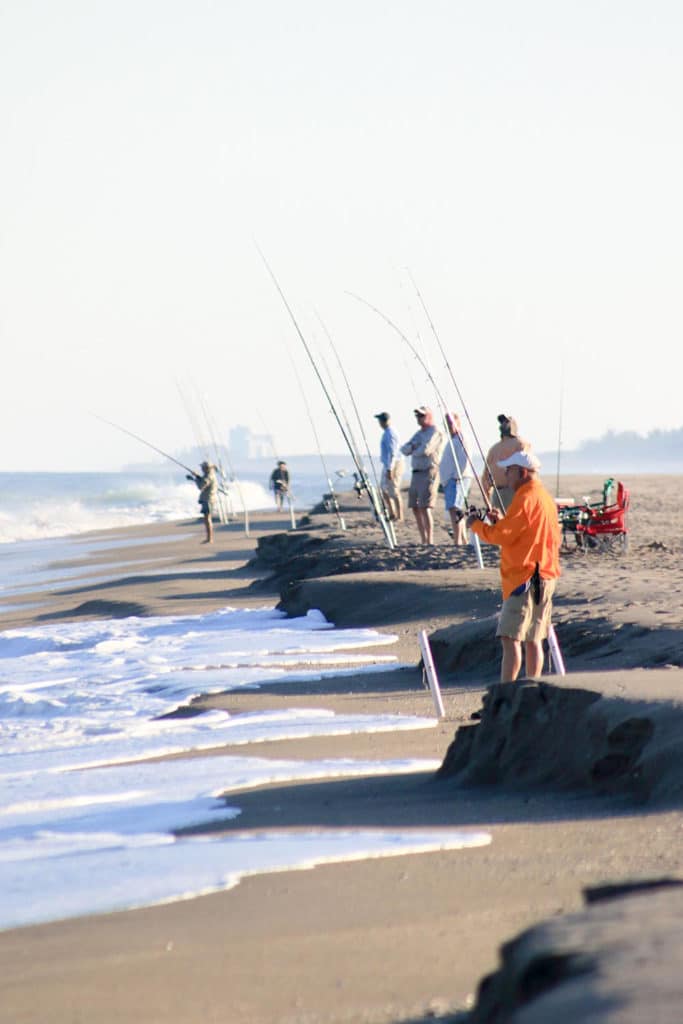
Angler gets a bite while others watch their rod tips intently.
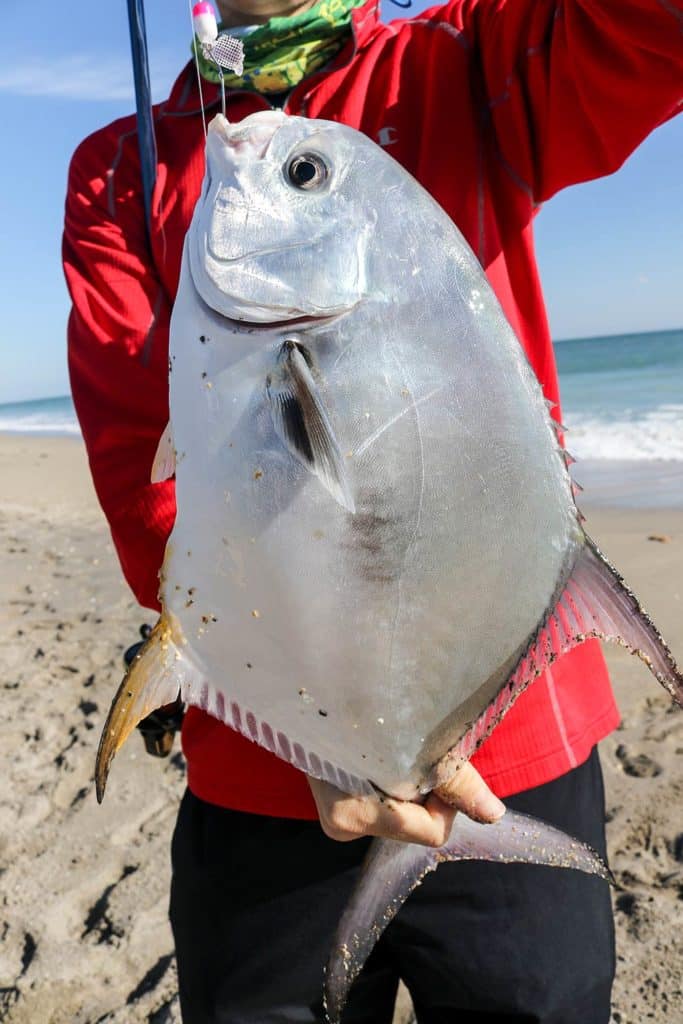
Permit patrol Florida Atlantic beaches from March through May. Big ones will pull your rod and sandspike out to sea, so be ready.

The pelvic fin of a small permit, which are part of the surf bounty in the spring.
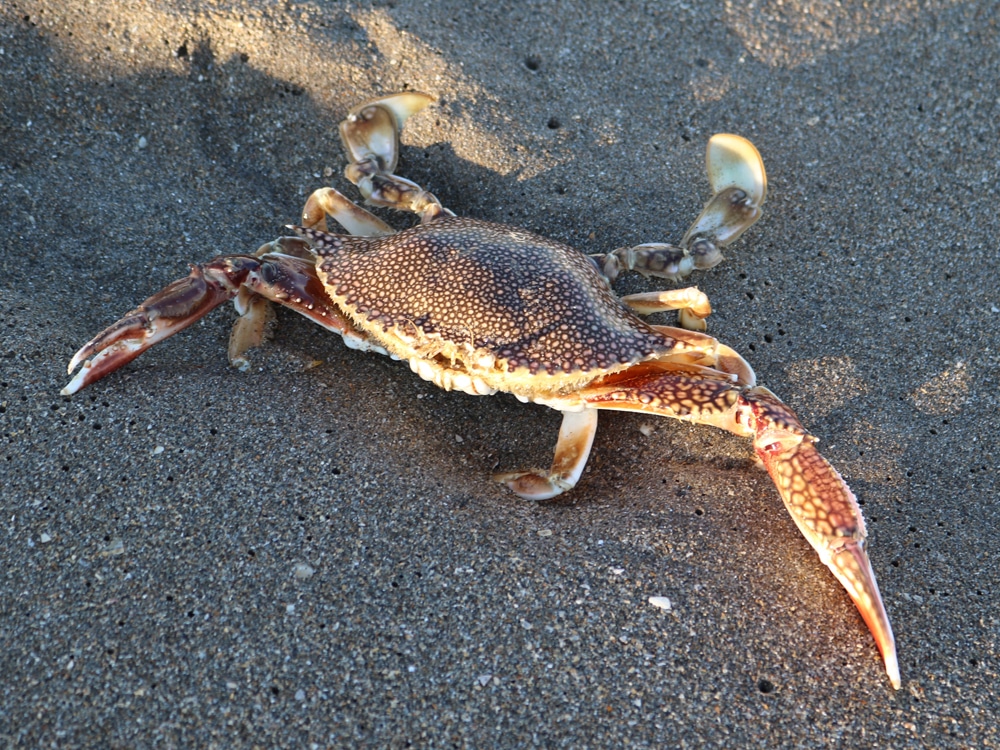
The speckled swimming crab is a bait thief extraordinaire.
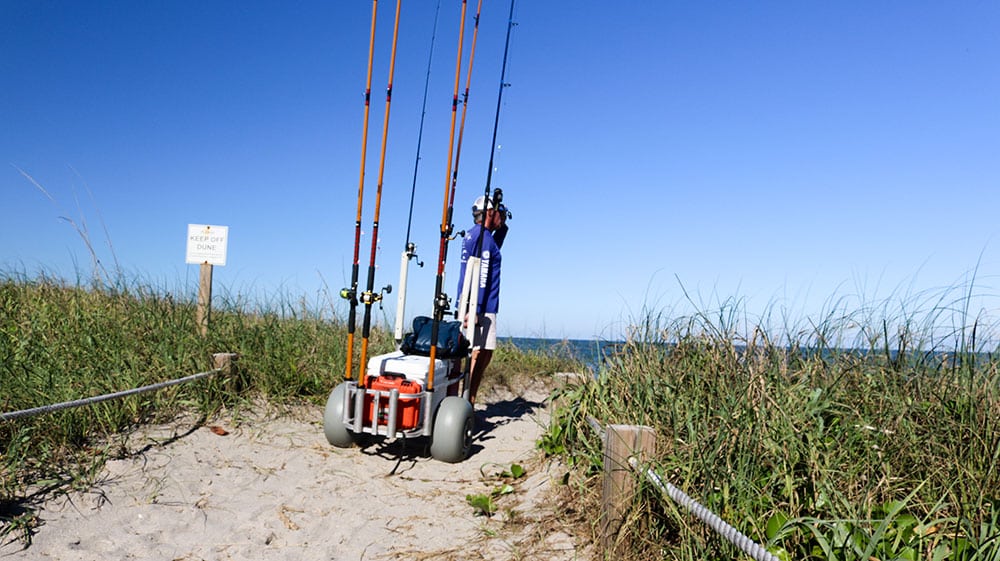
Should I stay or should I go? Reading the surf for suitable water is key to success.

Pretty, green water is typical when the wind comes off the land.

